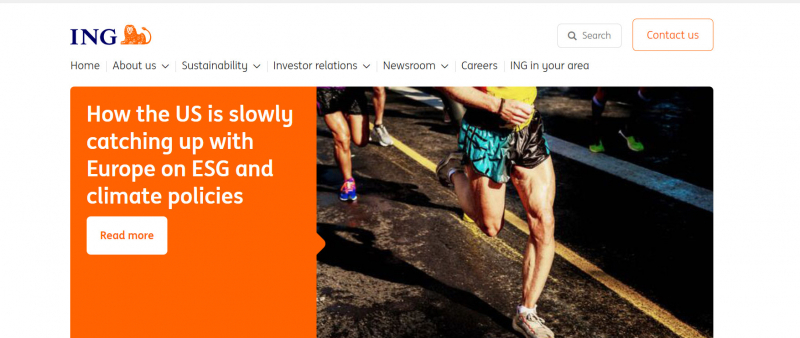ING
The Internationale Nederlandsen Groep (ING) was formed in 1991 by the merger of the Dutch insurer Nationale-Nederlanden and the Dutch national postal bank NMB Postbank. The origins of ING can be traced back to 1762, when John and Francis Baring established Barings Bank in London. ING took over Barings in 1995 after derivatives trader Nick Leeson bankrupted the 200-year-old investment bank.
ING is a multinational bank with a strong European presence. In over 40 countries, their more than 60,000 employees serve approximately 37 million customers, corporate clients, and financial institutions. Their mission is to help people stay one step ahead in life and business. In most of their retail markets, they offer savings, payments, investments, loans, and mortgages. They offer specialized lending, tailored corporate finance, debt and equity market solutions, sustainable finance solutions, payments and cash management, and trade and treasury services to their wholesale banking clients.
In terms of sustainability, they facilitate and finance society's transition to a low-carbon future, as well as pioneer new forms of finance to support a better world. Sustainability is an essential component of ING's strategy. According to Sustainalytics, ING's management of ESG material risk is strong (September 2021). S&P Global Ratings assigned ING an ESG evaluation score of 83 ("strong") in January 2021. MSCI upgraded ING's ESG rating to "AA" in December 2020. STOXX, Morningstar, and FTSE Russell all have major sustainability and environmental, social, and governance (ESG) index products that include ING Group shares.
Founded: 1900
Headquarters: Amsterdam, Netherlands
Website: https://www.ing.com/













